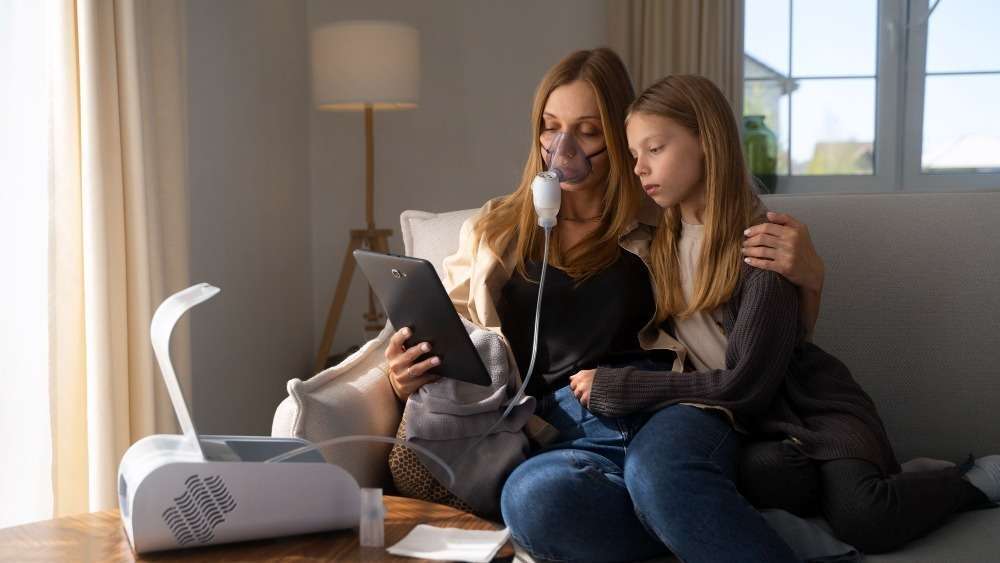Individuals suffering from sleep apnea find Continuous Positive Airway Pressure (CPAP) machines indispensable, as these devices ensure a steady airflow to maintain open airways during sleep. Opting for the appropriate CPAP machine can markedly enhance sleep quality and general well-being. This comprehensive guide, specifically curated for the American audience, aims to elucidate the critical factors to ponder when acquiring a CPAP machine.

1. Grasp Your Requirements
Prior to procuring a CPAP machine, it is imperative to comprehend your unique needs. Engage with a healthcare professional to ascertain the severity of your sleep apnea and obtain a prescription, as most CPAP machines necessitate one in the United States.
2. Varieties of CPAP Machines
A spectrum of CPAP machines exists, each tailored to address distinct requirements:
-
Standard CPAP: Dispenses a consistent, unvarying pressure throughout the night. This is the most prevalent and generally the most economical choice.
-
Auto-CPAP (APAP): Modulates pressure automatically in response to your breathing patterns. It affords greater comfort and is apt for users with fluctuating pressure needs.
-
Bilevel PAP (BiPAP): Provides two distinct pressure settings: a heightened pressure for inhalation and a diminished pressure for exhalation. It is frequently prescribed for users encountering difficulties in tolerating standard CPAP therapy.
3. Attributes to Ponder
When choosing a CPAP machine, contemplate the following attributes:
-
Humidifier: Integrated or attachable humidifiers can avert dryness and irritation in the airways by incorporating moisture into the airflow.
-
Noise Level: Seek out machines characterized by a low noise level to guarantee a tranquil sleeping milieu.
-
Portability: If your travel itinerary is frequent, mull over a portable CPAP machine that is lightweight and facile to transport.
-
Data Tracking: Certain machines proffer data tracking functionalities that permit you to surveil your therapy efficacy and impart information to your healthcare provider.
-
Mask Compatibility: Ensure the machine is congruous with a plethora of mask types to pinpoint the most comfortable option for you.
4. Venues for Acquiring CPAP Machines
In the United States, CPAP machines can be procured from an array of sources:
-
Durable Medical Equipment (DME) Suppliers: These specialized purveyors frequently collaborate with your insurance to furnish CPAP machines and supplies.
-
Online Retailers: Websites such as CPAP.com, Respshop, and Sleep Direct proffer a broad spectrum of CPAP machines and accessories, often at competitive prices.
-
Local Pharmacies: Certain pharmacies stock CPAP machines and can proffer personal assistance and setup.
5. Insurance Coverage and Expenditures
Comprehending insurance coverage and costs is pivotal when procuring a CPAP machine:
-
Insurance Coverage: The majority of health insurance plans in the U.S. encompass CPAP machines, albeit coverage specifics vary. Consult with your insurer to discern your benefits, including any copayments, deductibles, and rental options.
-
Out-of-Pocket Costs: Should you be remunerating out of pocket, prices can fluctuate from $250 to $1,000 or more, contingent upon the machine’s attributes and brand. Peruse various options and juxtapose prices to unearth the optimal deal.
-
Financing Alternatives: Certain suppliers proffer financing plans to aid in distributing the cost over several months, rendering the purchase more feasible.
6. Upkeep and Provisions
Routine maintenance and replenishment of supplies are indispensable for the efficacious utilization of a CPAP machine:
-
Filters: Substitute filters routinely to assure pristine airflow and prolong the machine’s durability.
-
Mask and Tubing: Replace masks and tubing every few months to uphold hygiene and optimal performance.
-
Cleaning: Cleanse your CPAP machine and components consistently in accordance with the manufacturer’s directives to preclude the accumulation of bacteria and mold.
7. Supplementary Resources and Assistance
Leveraging supplementary resources and support can augment your CPAP therapy experience:
-
Sleep Clinics: Numerous sleep clinics proffer support and follow-up care for CPAP users, encompassing machine adjustments and troubleshooting.
-
Online Communities: Participate in online forums and support groups to interface with other CPAP users, exchange experiences, and procure advice.
-
Manufacturer Support: Reach out to the manufacturer for customer support, warranty information, and product registration.
Conclusion
The procurement of a CPAP machine represents a momentous stride toward managing sleep apnea and ameliorating your quality of life. By comprehending your needs, exploring disparate types of machines, contemplating pivotal features, and harnessing available resources, you can make an enlightened decision and pinpoint the optimal CPAP machine for your circumstances.





